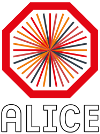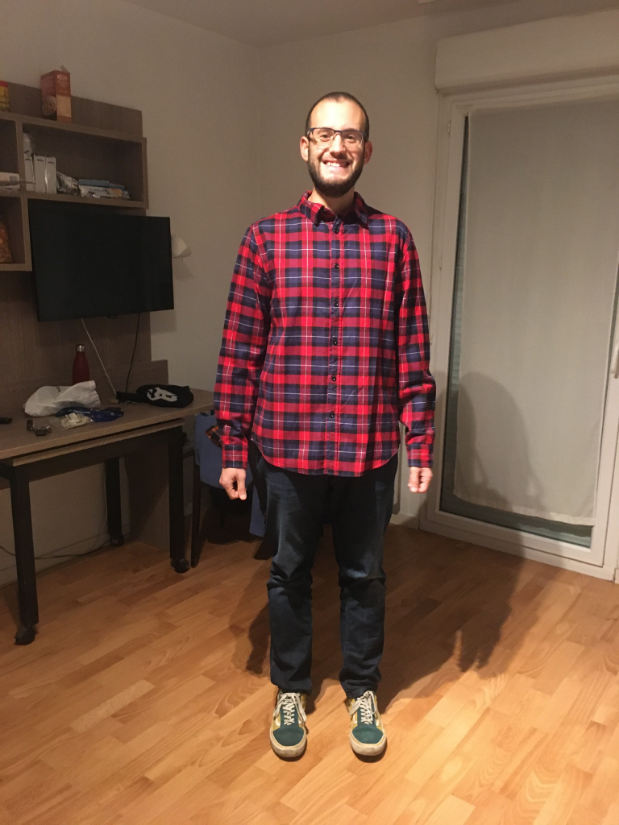Luca Quaglia
Hi all,
My name is Luca Quaglia, I am 26 years old and I come from Torino, Italy. In my free time I enjoy walking long
hikes and bike rides in the mountains during summer, while in winter I practice other physical activities such as
running or jumping rope. I am also very keen on exploring new places and getting to know new people.
I am currently at the start of my third year as a PhD student at the university of Torino. My thesis is focused on the
study of the aging of Resistive Plate Chambers (RPCs) detectors operated with new, more eco-friendly, gas
mixtures. From the beginning of run 3 I will also be involved in the data-taking for the ALICE muon identifier
and I’m carrying out my service task on O2 simulations for the Zero Degree Calorimeter.
I have been an ALICE member since the summer of 2018 for my master’s thesis, which consisted in performing a
test with an argon plasma on some of the ALICE MID RPCs in order to try to revert some of the aging effects that
have started to show up in them. Working on particle detectors at CERN has always been a dream of mine since I
was a kid and I have always been interested in practical work (building Legos and playing with the construction
game Meccano) so this opportunity was perfect for me. I really enjoyed the work so I decided to apply for a PhD
in the same group and now I am here!
I’ve had my first contact with the junior community during the last in presence ALICE week in 2019 and, since
then, I have always believed in the importance of having a strong junior component since, hopefully, we will be
the future of the experiment. Furthermore, I believe that working on hardware is a key component of a physicist’s
life and it is important for juniors to have a representative more involved in the technical side of things to both
give some updates and receive inputs from the whole community.
The difficult times that we are living have forced us to rethink the way we communicate and share new
knowledge. The in-person way of life has been abandoned, maybe for a longer time than we expected, and this
new “virtual” life has been embraced. Since I strongly believe in inclusion of everyone in the junior community I
would try to find a way for people from all around the world to participate in conferences and workshops (e.g.
with pre-recorded talks and Q&A sessions in forums or similar).
Best wishes to all and stay safe in these uncertain times!
Luca
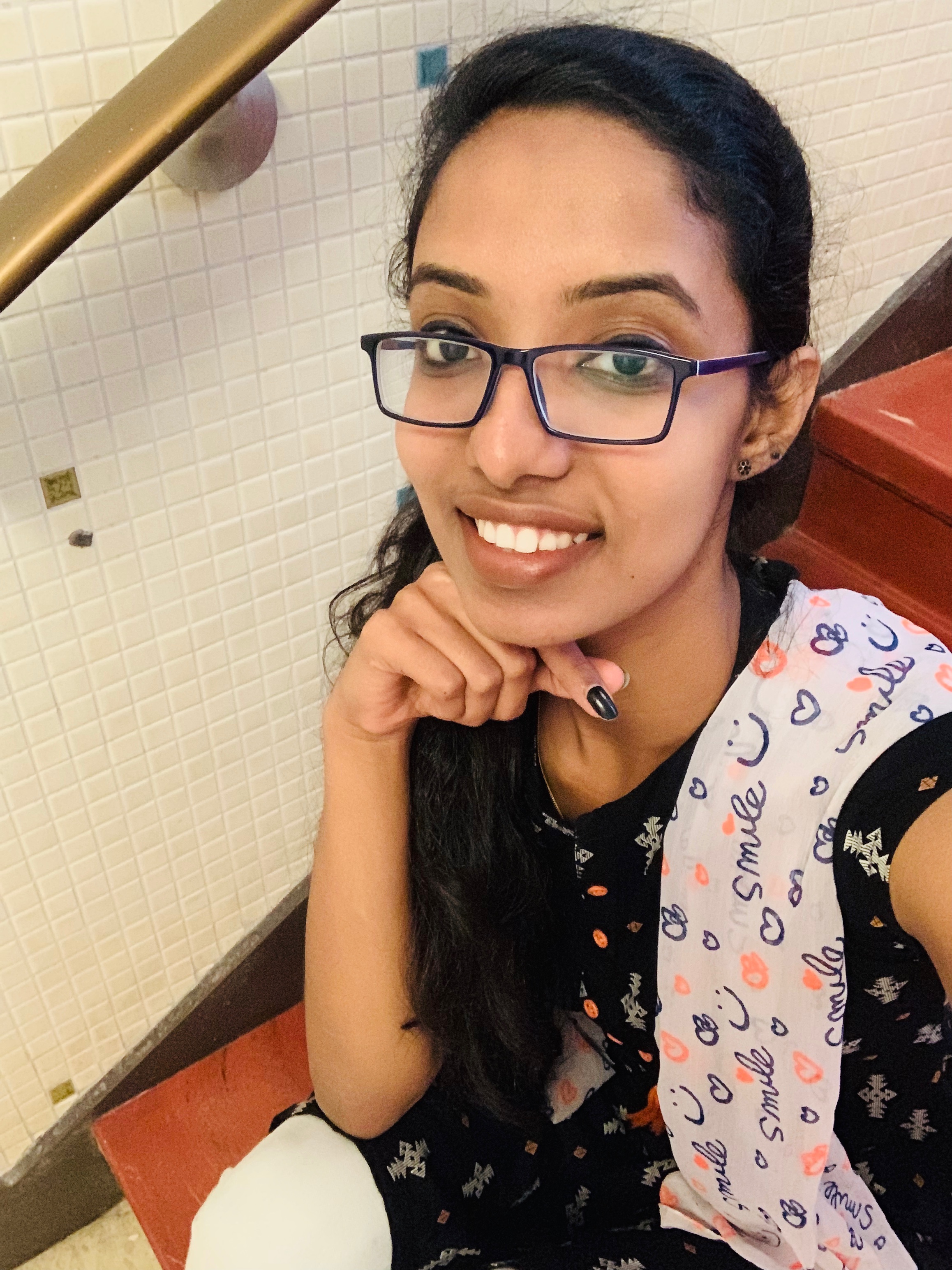
Anjaly Menon
Hi Everyone!
My name is Anjaly S Menon. I am in the second year of my Ph.D. program at the University of
Houston (UH). I am originally from Kerala, the southern state of India. I completed my Bachelors
and Masters at IISER (Indian Institute of Science Education and Research), Mohali in India. It was
a five-year dual degree program where I studied all science subjects for the first two years and
majored in Physics starting from the third year. I graduated from IISER in 2018 and joined the
University of Houston in the fall of the same year.
My Master’s thesis was under Dr. Satyajit Jena, who is a member of the ALICE collaboration.
Currently, I am working in the research group of Dr. Rene Bellwied and Dr. Anthony Timmins at
UH. I got to know about this ALICE Junior Representative (JR) election from an email sent by the
Juniors Committee. Apart from the enthusiasm to take this leadership role, one of the reasons I
want to run for this election is that I thought it would be a great opportunity for me to learn about
ALICE collaboration, interact with the people and understand various works that they are doing.
I believe there are juniors who are not aware of the chances they have in getting involved within
the collaboration. I also had similar thoughts until I discussed it with some of the members of
junior committee in person. If I get elected as a JR, I would try to make sure that every junior who
join ALICE are attentive of all the opportunities that are accessible to them. My hope is to
encourage others that have little experience in the ALICE collaboration or knowledge of the JR
leadership role to get involved in the junior ALICE community. I think that the most important
qualifications for becoming an ALICE JR is the desire to work hard, to learn from others and pass
that knowledge forward to those that come after you. By being elected as an ALICE JR I hope to
pave the way for those who think they are underqualified or too inexperienced to take an active
role in this community. It also seems to me that being a beginner, I can understand the freshmen
in a better and productive way.
I would also like to represent the women in Physics at UH. In my view, having a platform for
women to talk about working in Physics and being successful in their career, would be an
inspiration for young girls who are interested to come forward and pursue this career. The goal of
this should not be to discuss biases based on gender, rather to show that everybody enjoys equals
opportunities and that women are treated equally in science. If there exist similar programs already
in ALICE, I would like to work towards its progress.
Even though my experience in working with ALICE is limited, I have always had interest in
participating in social activities and discussions. In summary, if elected as a JR, I would be happy
to work hard in undertaking the required responsibilities.
Best,
Anjaly
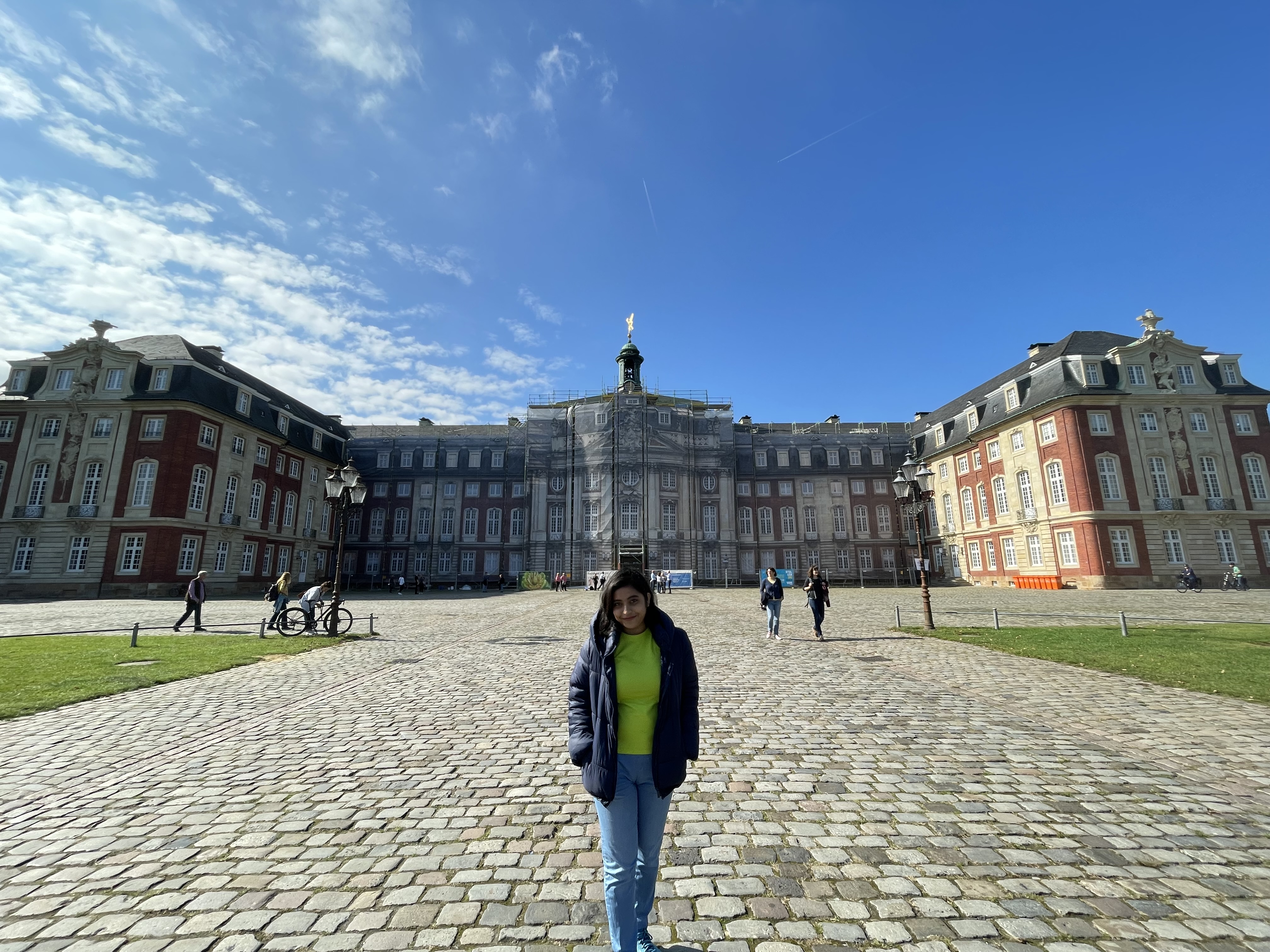
Archita Rani Dash
Hello everyone!
My name is Archita Rani Dash and I’m 26 years old. I’m native to the Republic of India; however,
currently I’m a fresh PhD student (since 1st September, 2021) in the ALICE group at the University
of Muenster (Westfälische Wilhelms-Universität Münster), Germany. My PhD main experimental
project is based on the study of heavy flavor jet production and structure in pp collisions at the LHC.
My side theoretical project is based on the nuclear PDF and uncertainties in heavy flavor production.
My first ever exposure to ALICE was during the first year of my Masters in 2019 when I studied
anisotropic flow in Pb-Pb collisions at √sNN = 5.02 TeV using AMPT model and thereby carried out
my Master thesis project in 2020 on “Is there a threshold in final state charged particle multiplicity
density for QGP- droplet formation in pp collisions?” which successfully resulted into a publication
in EPJA in 2020. Since then I’ve never looked back for I knew my heart belongs to ALICE! Therefore,
I’m currently embarked on my journey with the ALICE PWG-JE.
As a (fresh) ALICE Junior myself, I’m well aware of the various challenges that a junior faces when
it comes to getting started off with his/her Physics analysis work (especially, when it comes to
working with a completely new framework). Thus, having realised the potential, importance and
responsibilities that we, the ALICE Juniors, possess as forerunners of the ALICE experiment, I am
highly motivated to run for the Juniors’ Representative position to ensure that our juniors’ community
is rightly represented, well communicated and supported during the course of their tasks irrespective
of their nationalities. I aim at establishing a close harmonious association of the juniors’ community
with that of the seniors/experts in this field through various workshops, seminars, hands-on sessions
and lecture series and in turn imparting the knowledge and experiences gained in the process to the
young curious minds of high school students during the ALICE masterclass sessions.
On a lighter note, as an introvert, I enjoy the company of books, dogs and strong coffee. As a
professional book reviewer, I enjoy reviewing books of varied genres; although my most favorite
genre is ‘historical fiction’. I love to play with words and plots that made me to make my debut as a
poet by self-publishing my poetry book back in 2018. Well, if you don’t find me working on my
analysis or reading books, you’d definitely find me playing my guitar or drums (I’m learning to play
drums lately and I still need to sound sober :P) or travelling solo, doing street photography and eating
good food!
I strongly look forward to unanimously striving towards unfolding our universe, with some new
Physics, with the upcoming Run 3 data.
Cheers,
Archita.
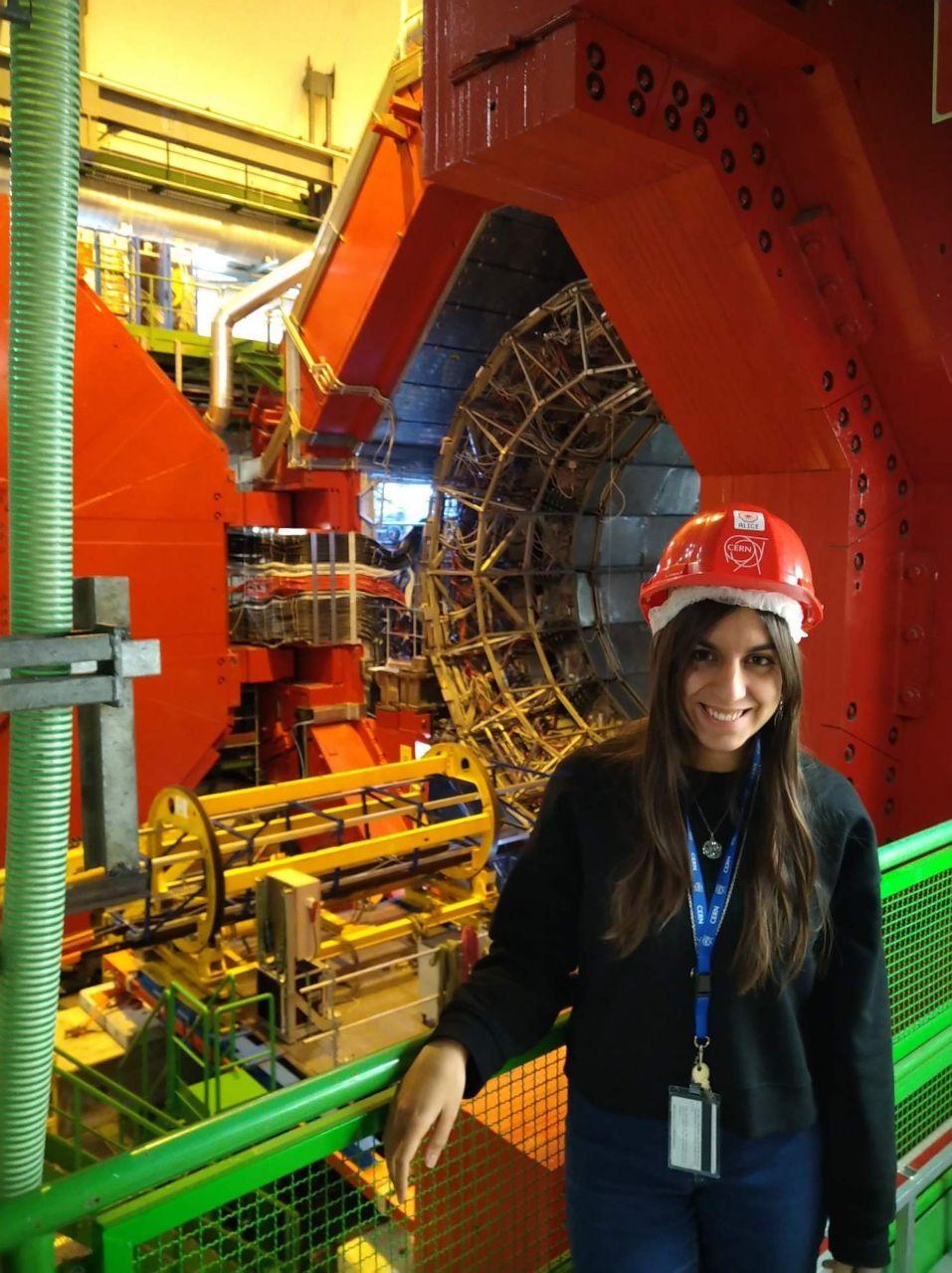
Livia Terlizz
Hi everyone!
My name is Livia Terlizzi, I'm 28 years old and I was born in the south of Italy!
I'm currently at the beggining of my third year as a PhD student from University of Torino in Italy.
I've been part of ALICE since my master's thesis in 2018. I have to say that I'm mostly a "detector person" :) My work is
in fact mainly focused on detectors: I'm taking care of the test, characterization and installation in cavern of the Resistive
Plate Chambers (RPCs) detectors for the ALICE Muon Identification System (MID).
I'm currently involved in the commissioning and maintenance of the ALICE MID for Run 3 and I will also take part in the
commissioning, maintenance and operations of the Zero Degree Calorimeter (ZDC). Together with these activities, I am
involved in the study of new environment-friendly gas mixtures for the RPCs detectors at the Gamma Irradiation Facility
at CERN.
Outside work I've basically two sides. On one hand I'm a bookworm, loving to stay on the sofa reading for hours. On the
other hand I'm really found of sports. I like to hike and also to play tennis, although I'm not that good in this one, I'm just
doing it for fun!
Last but not least, I love to go out with friends, taking a beer or a glass of wine, but mostly, since I love to cook, I usually
use to have lunch/dinner at home with them!
I've always loved the fact that ALICE has a strong and committed junior community, who is deeply involved in the
experiment life and makes his voice heard.
In order to continue on this path, I would like to give my best so that the juniors feel as more involved as possible. I want
that everyone feels to be active part of the ALICE community, regardless of whether they are based at CERN or on the
other side of the world, and help to make both work relationship in order to build our future, but also new friends, so that
we can help and support each other.
Moreover I strongly believe that everyone has something to give to improve the community so, in light of this, I would like
to encourage the juniors to share their experience and knowledge: you never know who you might inspire and motivate!
In conclusion, if you want, don't esistate to contact me to talk or ask any question. I can't wait to see you (hopefully) in
person someday.
Take care and see you soon!
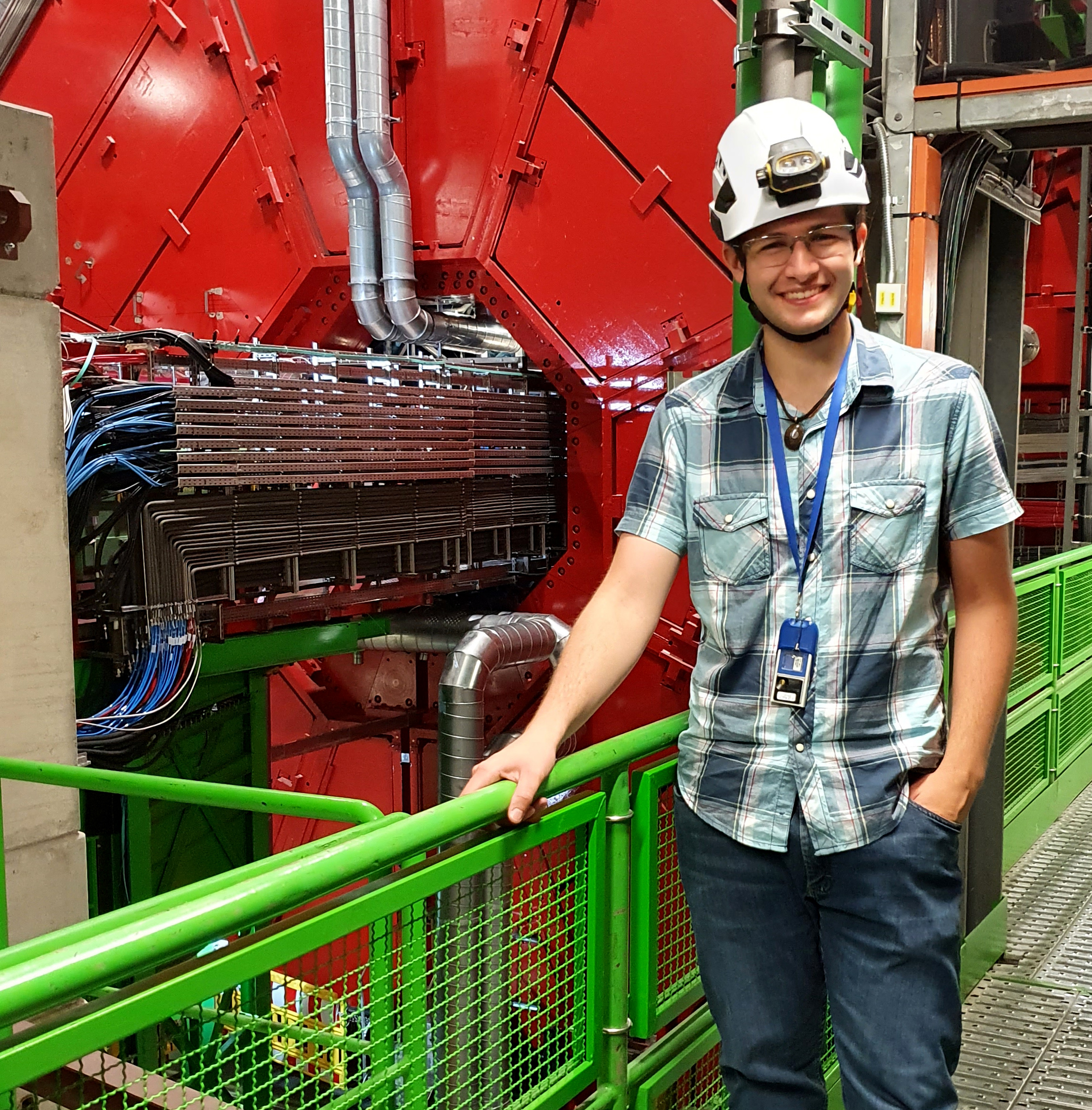
Ezra D. Lesser
I am a fourth-year Ph.D. student from the University of California in Berkeley, California, USA. My work
in ALICE has primarily been focused on jets, specifically using jet substructure as a probe to study QCD
and the fundamental structure and interactions of the QGP. I also recently began working with the ITS
group locally at CERN, where the upgraded detector is being commissioned for the upcoming runs of
physics data, an essential collaborative undertaking to be completed in the coming months.
I applaud the work of our current and previous junior Collaboration Board representatives, but there still
is work to do on improving ALICE policies for juniors. I am specifically concerned by the apparent lack of
ALICE protocol regarding service work allocation for juniors. While the existing ALICE portal is very useful
for seeing available tasks, it should also provide more details for students to explore and find novel
service work happening within the collaboration. I am equally concerned by the disconnect in standards
which I have seen applied to juniors in different physics working groups, be it with obtaining external
talks, publishing results, or even making analysis decisions. In some cases, different physics working
groups may not have standardized methodologies affording all students the opportunity to obtain talks
at major conferences, nor rules on when basic analysis decisions should be finalized as to prevent
dragging out publications unnecessarily. ALICE also has many existing resources of great value (such as
the Conference Committee TWiki page) which must be updated for current use, and juniors should be
made more aware of their existence.
Having worked with four different physics collaborations since 2015, with sizes ranging from a handful of
dedicated people to the five-thousand-plus members of ATLAS, I have observed a few of the strategies
and successes of different approaches to providing opportunities and support structures for younger
collaborators, which I feel that ALICE could adopt in its own way to alleviate unnecessary pressure and
inequality for junior members of our collaboration. For example, scheduling open discussions of the
various service tasks between experts and potential students would alleviate the difficulty of matching
tasks and provide a great benefit to both parties involved.
With the upcoming analysis framework changes that will occur in conjunction with the new data from
LHC Run 3, there also needs to be some collaboration-level discussion on ways in which juniors, who will
generally be using the software, can become familiarized with the new code and its many changes from
Run 2. Clear, plain-language tutorials should be created for helping new users, and some forum should
be created for requesting additional assistance, when needed.
The security and support of students in ALICE can be improved by higher-level attention to points such
as these and a willingness to modify the institution in a way which directly addresses these issues. It is
therefore essential that the juniors are actively represented in the Collaboration Board; and I won’t be
shy. Juniors comprise a large percentage of the collaboration, and hearing the concerns of the people
who define its future is key to ensuring the forward directions of ALICE.
I also am a big proponent for getting outdoors, and believe that regularly-scheduled, inclusive junior
gatherings, including open online forums, but especially local events, will greatly contribute to the
communication between juniors, and by enhancing our means of discussion, initiate a means to resolve
the issues which are most important to our experiment. Apart from physics, I am a passionate musician
and mastering engineer having done private research and restoration work for several independent
record labels and artists across the US and Europe.
If you have questions or would like to chat about the issues that are important to you, please do not
hesitate to reach out to me via phone or email.
ezra.lesser@cern.ch
(We hide the personal contact in the webpage - Committee.)
Carolina Anna Reetz
Hi Juniors!
My name is Carolina Reetz, I am 25 years old and about to start my PhD in ALICE.
I am a student at University of Heidelberg in Germany and I am working with the ALICE group at
GSI in Darmstadt. Currently I am finishing my Master thesis in heavy flavour analysis (PWG-D2H)
working on the reconstruction of the Xic+ baryon in pp collisions using machine learning
techniques in order to extend previous measurements to even lower transverse momentum. I have
been a part of ALICE ever since I started my Bachelor thesis and learned to love the brought variety
of physics we address in our collaboration and the possibilities it entails.
I come from the south-west of Germany and enjoy visiting the Alps, going skiing in the winter and
hiking during the summer. Since I was a kid I have been a rock climber, a singer and also a piano
player (with some breaks on the way ;-) ).
I spend lots of my free time by getting involved in several projects at my university, which aim at
creating networking platforms for students in physics or informing pupils about what it means to be
a physicist and especially to work in ALICE. As a result, I have become more and more passionate
about communicating science and being active in outreach projects.
As a supporter of the Hadron and Nuclear Physics Division of the German Physics Society, I am
helping to organise annual physics conferences in my country. Beyond that, I take great pleasure in
organising social events and in all the tasks that go with it.
My first contacts with the ALICE junior community unfortunately were purely online. After
participating in several Juniors’ Days I immediately realised the potential of an open and active
junior community in our large collaboration and therefore I became Junior Ambassador of Germany.
Since then I am working on connecting all German ALICE juniors distributed over the country. I am
confident that increasing contacts between juniors only brings advantages and possibilities with it.
During the last ALICE week in November 2021 I travelled to CERN and I enjoyed very much being
among other juniors and having the possibility to chat with them directly after a long time of online
meetings.
I am running for the Juniors’ Representative because I would love to see an even more connected
and active junior community in our collaboration and would be happy to participate in forming it.
The juniors will always be a large and important part of our collaboration and are therefore
compulsorily shaping the ALICE collaboration and pushing it forward.
I really like to get involved in different projects and communities and I always do my best in
creating a welcoming and safe environment for everyone. I would be delighted to be able to tackle
this task for our community as well.
Looking forward to meeting you all and to getting in touch!
